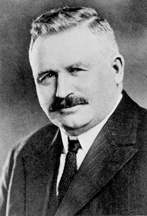|
|
It’s not surprising that this titular lyric from R.E.M.’s 1987 song has been going through my head for a while now. But the last 18 days have reinforced that, unlike R.E.M., I don’t “feel fine.” Years ago, I moved this blog away from politics to write about “things that bring nuance to life.” As then, I’m again hoping that things I enjoy will distract me from the ramifications of a childish narcissist as president.
As a result, I’ve decided to write more about music, books, history and the like. The first album review in years will appear tomorrow and what will be only my second book review in 13 months will show up later this week. There’s at least one other book review in the works and plans for a couple of posts on things I find interesting.
I’ve said a few times before that this site would be less dormant. This time, though, writing and other things I find pleasure in will allow me to escape — or at least forget — for a time the nausea and anger I feel any time I check the news.
See you tomorrow.
I think of a pessimist as someone who is waiting for it to rain. And I feel completely soaked to the skin.
Leonard Cohen, “The Joking Troubadour of Gloom“
The last couple months revealed a gap in my education: South Dakota history. Granted, I know the basics — the Homestead Act, sod homes, Indian tribes and treaties, the railroads, agriculture, the Dirty Thirties, meatpacking, credit cards. But I’ve never had a South Dakota history course and it became apparent when I learned South Dakota toyed with what most would consider socialism.
This fall I was reviewing materials in the Peter Norbeck papers in the State Archives. I realized I didn’t know much about Norbeck, governor from 1917 through 1921 and U.S. Senator from 1921 to 1936, so I bought a copy of his biography. While Norbeck was a Republican like all but one of the prior governors, I was shocked by his political views and legislative accomplishments as governor.
Norbeck was a Republican a la Teddy Roosevelt and Robert La Follette. “Trust buster” Roosevelt’s support for progressive reform grew during his presidential term (1901-09). About 18 months after leaving office, Roosevelt gave the so-called “New Nationalism” speech. In it, he observed that lack of government restraints helped “create a small class of enormously wealthy and economically powerful men, whose chief object is to hold and increase their power.” He said such fortunes should be allowed “only so long as the gaining represents benefit to the community. This, I know, implies a policy of a far more active governmental interference with social and economic conditions in this country than we have yet had, but I think we have got to face the fact that such an increase in governmental control is now necessary.” Within two years, he split from the Republican Party to form and run as the presidential candidate of the Progressive (“Bull Moose”) Party. La Follette would form a new Progressive Party and be its presidential candidate 12 years later.
 Peter Norbeck Although Norbeck always was a Republican, he certainly wouldn’t be considered one today. The 1917 legislative session, the first of his gubernatorial terms, reflects his progressivism.
That legislature proposed a constitutional amendment allowing the state to own and operate “proper business enterprises” and to own stock in corporations. Other proposed constitutional amendments embraced state ownership of specific types of businesses: hydroelectric plants, coal mines, a cement plant, hail insurance, grain elevators and warehouses, and flour and meat-packing businesses. Norbeck supported all of them, although he was admittedly lukewarm on the grain, flour and meat-packing enterprises. Even prior to becoming governor, Norbeck promoted creation of a state rural credits system. He largely wrote the law passed in 1917. It allowed a Rural Credits Board to borrow funds on state credit and then, using real estate mortgages as security, make direct loans to farmers at interest rates of no more than five percent.
Norbeck’s support for direct state involvement in the economy is clear. As noted in a book on South Dakota leaders, his actions were “a shift in South Dakota politics to the ideological left[.]” The shift was such that voters approved all of the constitutional amendments in the 1918 election. (Although a workers’ compensation act also passed in 1917, not all the days’ popular ideas look good today. Thanks to the growing eugenics movement, the legislature also passed a bill “for the Prevention of the Procreation of Idiots, Imbeciles and Feeble-Minded Persons.” It allowed the state’s “Home for Feeble-Minded persons” to determine whether residents should be allowed to “procreate.” If not, they would be sterilized.)
A 1918 Norbeck campaign pamphlet reflects his accord with Roosevelt’s ideas. Norbeck argued that the state being in certain areas of business wasn’t socialism. “Where men attempt to extort an unreasonable profit,” Norbeck wrote, “it is the business of government to step in and regulate it and where the regulation can be best had by government ownership and operation, this plan should be adopted.”
In addition to the rural credits system South Dakota would have a state hail insurance program, would buy a coal mine (located, ironically, in North Dakota) and toke steps toward a state cement plant, which began production in late 1924. Norbeck embarked on a massive road construction program and the state funded a survey of possible hydroelectric dam sites on the Missouri River — nearly 30 years before the Pick-Sloan Plan would lead to federal construction of Missouri River dams.
The thought of a Republican governor advocating government business ownership is beyond imagination today. Ultimately, though, only the cement plant, sold at the end of 2000, was a success. Due in part to malfeasance by its treasurer and an agricultural depression after World War I, the rural credits system was shut down after 6½ years. By then, it had loaned $45 million and borrowed $47.5 million. When finally liquidated, it cost taxpayers $57 million.
The state bought the coal mine for a total investment of $185,000 (approximately $2.6 million today). It was sold in the midst of the Depression for only $5,500, although that disregards what state institutions saved buying coal below market rates. The hail insurance program was abolished in 1933. The state ultimately paid just under $279,000 in debt ($4.7 million today), although backers claimed farmers saved $7.5 million in insurance premiums between 1919 and 1929.
I can’t help but wonder if these expensive failures helped lock South Dakota Republicans and politics into conservatism. Legislators and the public felt burned and it was easy to condemn analogous ideas by saying, “Not only is this socialism, look what it cost!” It certainly discredited progressivism in the party that enacted Norbeck’s programs and which dominates state government to this day.
“In spite of his flirtation with state socialism while he was governor, [Norbeck] never embraced its basic theories and strongly opposed ‘radicalism,'” writes his biographer. Norbeck’s actions can speak for themselves. But who today would believe South Dakota dabbled with state socialism while Republicans held the governorship and more than a two-thirds majority in each house of the legislature? It boggles the mind.
Actually [Norbeck] was a New Dealer before Franklin Roosevelt’s era.
Gilbert Fite, Peter Norbeck: Prairie Statesman
As my kids have told me for years, I’m a hard person to buy presents for. That’s in part due to my varying and often eclectic tastes. But a bigger reason is that for items that are probably $50 or less, I have no hesitancy in buying the things in which I’m most interested. That makes Christmas season dangerous.
 In ensuring I’m getting the “gifts” I want, I tend to binge a bit and doing virtually all my shopping online makes it a bit too easy. Not surprisingly, my greatest indulgence comes with books. The accompanying picture reflects the reading gifts to myself purchase on Black Friday and Cyber Monday this year. It’s probably typical, if not slightly below average. In ensuring I’m getting the “gifts” I want, I tend to binge a bit and doing virtually all my shopping online makes it a bit too easy. Not surprisingly, my greatest indulgence comes with books. The accompanying picture reflects the reading gifts to myself purchase on Black Friday and Cyber Monday this year. It’s probably typical, if not slightly below average.
The stack reflects a couple History Book Club sales and the balance came from a couple discount codes Amazon offered. While these will keep me occupied for a good chunk of the winter, I’m sure there will be some more online deals before Christmas arrives. Moreover, I haven’t been to the local B&N with the discount and gift cards I have.
I love Bookmas.
Books as physical objects matter to me … because i find their presence emotionally enriching.
Joe Queenan, One for the Books
I recently finished an oral history of the period from August 1969 through September 1970, one of the most tumultuous of 20th century America. The first chapter dealt with the draft and the draft resistance movement and, as would be expected, the Vietnam war infused the other topics in the book, which I recommend reading. It brought to mind a particular day of my freshman year of college.
For those too young to remember, in December 1969 the Selective Service System began conducting lotteries to determine the order in which draft-eligible men would be called to report for possible military induction. It was the first such lottery since 1942. That day, 366 slips of paper containing birth dates were placed in plastic capsules and drawn individually by hand from a water-cooler size glass bowl. The order of selection was the order in which draft calls would be made for all men born from 1944 to 1950.
I actually was in the last draft lottery on March 12, 1975. By then, it was more randomized. A date would be pulled from one large rotatable bin and a number from 1 to 366 would be pulled from a second. Thus, the order in which the dates were drawn didn’t affect the resulting draft number.
It would be easy to think there was no reason to worry about the draft then. The last draft call had been December 7, 1972, and the last American combat soldiers left South Vietnam in March 1973. But in January 1975 the North Vietnamese started a major offensive and by March 1 the South Vietnamese Army had suffered massive losses and was in full retreat. Whether justified or not, my peers and I began wondering if Washington would think it necessary to go back into the fray. While that didn’t occur, all we knew on that March 12 was that things were quickly going to hell in South Vietnam (in fact, Saigon would fall on April 30).
Given there was no internet, no 24-hour news cycle and the lottery wasn’t a central concern in the country, finding the draft numbers took some effort. I don’t recall exactly how we found out but my lottery number was 343, meaning that even if the U.S. foolishly re-entered Vietnam, there was zero chance I would be drafted. To the best of my recollection, my roommate’s draft number was over 200, also a safe place. We actually threw a party in our dorm room to celebrate.
Fortunately, the lottery wasn’t a life-changing event. And criticism that the lack of a draft skews the socioeconomic makeup of our military and overburdens the National Guard has some validity. Yet it’s something I still and will always remember. I am perhaps more thrilled I wasn’t born six years earlier. In that December 1, 1969, lottery, the first date drawn was my birthday.
A “just war” – if there could be such a thing – would not require conscription. Volunteers would be plentiful.
Ben Salmon, “Open Letter to President Wilson“
Damn it to hell. It’s happening already. The media is trying to normalize Trump. They say “give him a chance” or that he’s already moderating his positions.
Bullshit. The reality is America is giving control of the country to a misogynist, racist, irrational, bullying, pathological liar. And, of course, he’s already appointed an alt-right conspiracy theorist as his “chief strategist and senior counselor.”
 Look, I HATED Richard Nixon. I HATED Dubya. But Trump scares me shitless. This is a guy whose insistence on shooting off his mouth, usually with made up facts, was beyond the control of his campaign advisors and whose main interest seems to be retribution against anyone who challenges or irritates him. Just the kind of guy you want dealing with crisis situations. And even if Trump were to resign immediately after being sworn in, he’d need to fire Mike Pence first because although Pence makes a better appearance he is, believe it or not, just as bad, if not worse. Look, I HATED Richard Nixon. I HATED Dubya. But Trump scares me shitless. This is a guy whose insistence on shooting off his mouth, usually with made up facts, was beyond the control of his campaign advisors and whose main interest seems to be retribution against anyone who challenges or irritates him. Just the kind of guy you want dealing with crisis situations. And even if Trump were to resign immediately after being sworn in, he’d need to fire Mike Pence first because although Pence makes a better appearance he is, believe it or not, just as bad, if not worse.
My slight glimmer of hope is that Trump’s election will galvanize the wide array of people he’s attacked — women, LGBT, minorities, Muslims, immigrants, etc. — and a united dissident movement will emerge to protest and challenge him, his policies and his hatred. I’ve stayed away from politics for years. But this man is a threat to my family, America and the world. I will do everything I can to resist and oppose him and, hopefully, an organization of like-minded people will come to fruition in this area.
How does it become a man to behave toward the American government today? I answer, that he cannot without disgrace be associated with it.
Henry David Thoreau, Civil Disobedience
|
Disclaimer 
Additionally, some links on this blog go to Amazon.com. As an Amazon Associate I earn from qualifying purchases. There is no additional cost to you. Contact me You can e-mail me at prairieprogressive at gmaildotcom.
|


 Look, I HATED Richard Nixon. I HATED Dubya. But Trump scares me shitless. This is a guy whose insistence on shooting off his mouth, usually with made up facts, was beyond the control of his campaign advisors and whose main interest seems to be retribution against anyone who challenges or irritates him. Just the kind of guy you want dealing with crisis situations. And even if Trump were to resign immediately after being sworn in, he’d need to fire Mike Pence first because although Pence makes a better appearance he is, believe it or not,
Look, I HATED Richard Nixon. I HATED Dubya. But Trump scares me shitless. This is a guy whose insistence on shooting off his mouth, usually with made up facts, was beyond the control of his campaign advisors and whose main interest seems to be retribution against anyone who challenges or irritates him. Just the kind of guy you want dealing with crisis situations. And even if Trump were to resign immediately after being sworn in, he’d need to fire Mike Pence first because although Pence makes a better appearance he is, believe it or not, 






